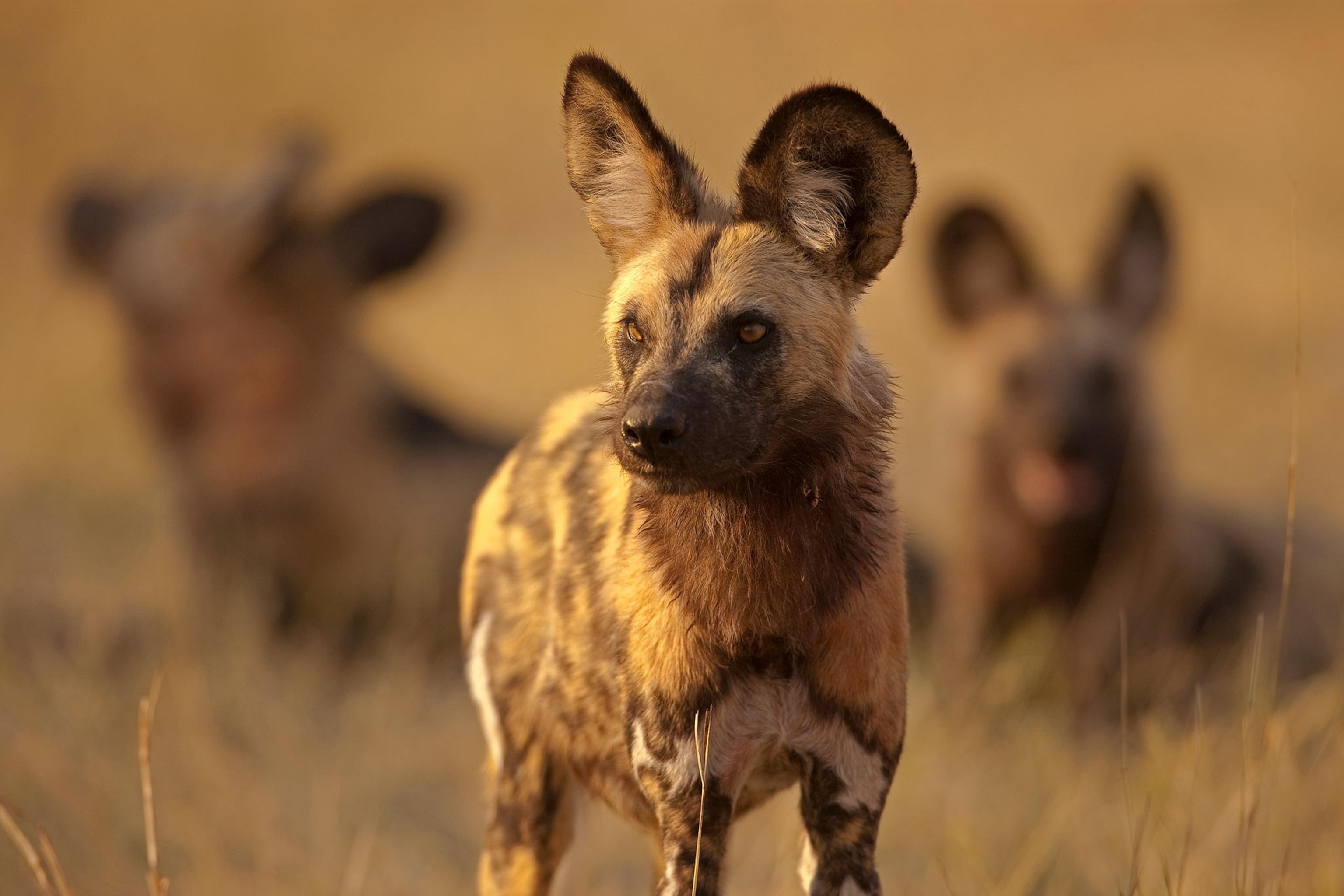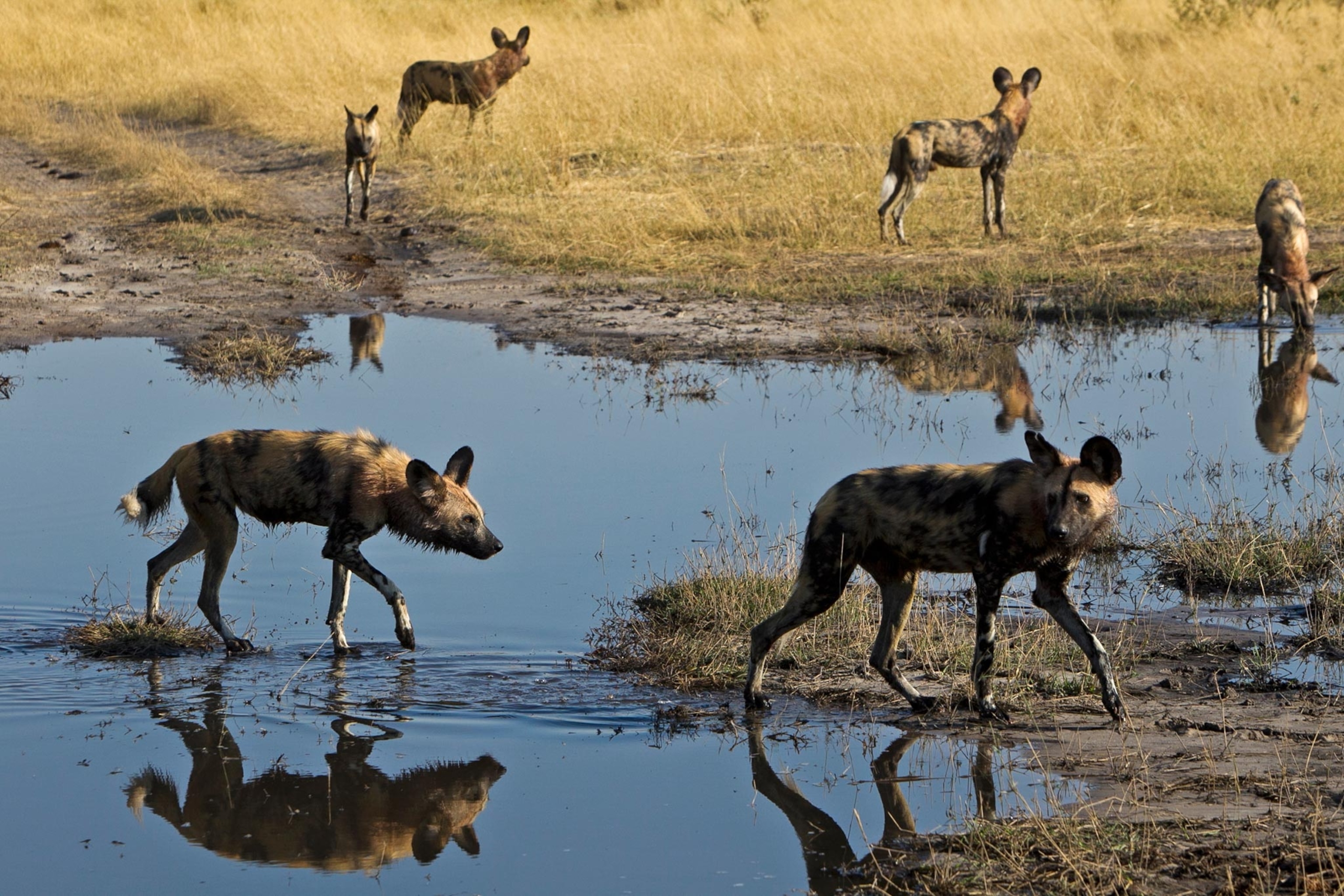These Dogs Vote by Sneezing
The way African wild dogs seem to come to a consensus might make you say gesundheit.
Democracy isn’t just for humans. New research suggests the sociable carnivores known as African wild dogs make consensus decisions too—by sneezing.
The canine equivalent of “achoo!” seems to serve as a vote for some groups of the dogs, which live in countries such as Namibia and are distantly related to domestic pooches. Wild dogs embark together to hunt only when there’s enough sneezing at a pack gathering, says a study in this week’s Proceedings of the Royal Society B: Biological Sciences.
For the dogs, sneezing “is a form of communication,” says study co-author Reena Walker, who performed the research as a student at Brown University and a research technician at the Botswana Predator Conservation Trust. “The sneeze acts as some kind of signal that shapes decision-making.”

At first Walker and her colleagues aimed to understand how dogs in Botswana mark their territories, but the researchers were intrigued by an odd habit of their study subjects. “We all started questioning, ‘Why are these dogs sneezing so much?’” Walker says.
Like humans, a wild dogs sneeze with a short, sharp burst of air from the nose. Sometimes dogs sneeze at rest. But most sneezes occur during the pre-hunting ritual known as a rally.
Think of your dog’s excitement when you arrive home from work, Walker says, and you’ll have a good idea of the scene at a wild-dog rally. For a few minutes, the dogs in a pack frenetically touch heads, wag their tails and dash side-by-side, activity thought to reinforce social bonds.
Walker and her colleague watched five packs, each including four to 15 grown or nearly grown dogs, engage in these big canine parties. Some rallies ended with the dogs trotting off to hunt. But some rallies fizzled. Then the dogs went back to sleep in the shade, often in a pile of furry bodies.
The researchers noticed a pattern: the more sneezing at a rally, the more likely the dogs were to set out on a hunt. If one of the pack’s top dogs kicked off the rally, it took three sneezes to send the pack in pursuit of a meal, usually antelope. If a low-ranking pack member initiated the rally, it took 10 sneezes to guarantee a hunt.

The researchers can’t be sure the sneezes are the equivalent of “aye” to hunting. But Walker points to the different sneeze thresholds – one for high-status dogs, one for the rank-and-file—as support for the idea that sneezes count toward a quorum.
The findings reveal an extra level of complexity to the dogs’ society, which otherwise looks like an autocracy. The alpha male and female are the only pack members whose pups survive to adulthood, and underlings feed and babysit the leaders’ pups.

The new results show a dog pack “is not really despotic,” Walker says. “There is indeed a more democratic process for daily activities and group decisions.”
The research looks solid, says National Geographic Young Explorer Dedan Ngatia, a carnivore researcher at Mpala Research Center in Kenya. “I frankly never thought that sneezing was an important factor. … This is a really huge finding!” He hopes to see whether the packs he studies also sneeze to make decisions.
The study’s description is “fascinating,” says Harriet Davies-Mostert, head of conservation for the Endangered Wildlife Trust in South Africa. She and other colleagues who observe wild-dog rallies have not seen high levels of sneezing, so perhaps sneezing is only used by Botswana dogs, she says. She’d also like to see more research to confirm that the sneezing is not just a response to other cues noticed by the dogs.
Walker has her own hopes for the research: that it will raise the public profile for a species in serious trouble. Only 6,600 African wild dogs still roam the continent, by the most recent official count. Fragmentation of their habitat and diseases such as rabies are driving their numbers still lower.
“They’re absolutely gorgeous animals focused on cooperation and their pack family unit,” Walker says. “The more people who are aware [of] how amazing these animals are, the better.”